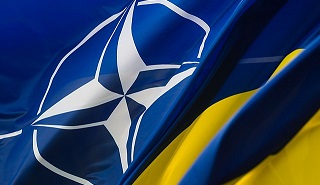NATO needs to grapple with new geopolitics
04 February 2022

Dr Kenton White, Lecturer in Strategic Studies and International Relations provides expert commentary about the role of NATO in considering the current escalating tensions on the Ukraine Russia border:
“NATO faces a difficult situation about its role in Europe. Following the end of the Cold War it was a defensive alliance without an enemy. It’s intervention during the collapse of Yugoslavia and operations in Afghanistan broadened the partnership’s scope but it now faces its biggest problem since the Berlin Wall fell with the escalation on the Russia-Ukraine border.
“NATO is due to renew it ‘Strategic Concept’. This needs to reflect reflect the changing situation not only in Europe, but globally. Locally, the examples of Georgia and Ukraine show us that destabilisation by neighbouring powers is a threat to security. Indeed, Poland is currently experiencing something akin to this on its border with Belarus and NATO has yet to respond convincingly. There are also ongoing concerns about how China is consolidating its hold in the South China Sea, which may threaten supply routes to Europe. Whether this will be seen as a threat for NATO to respond to is still unclear.
“As NATO members grapple with these questions and whether old lessons are relevant for 21st century threats, it seems clear that many members will not be prepared for the expense of the levels of military deterrence required in this developing future.”
Image credit: Ukraine – NATO Commission chaired by Petro Poroshenko, The Presidential Administration of Ukraine, Ukraine – NATO Commission chaired by Petro Poroshenko (2017-07-10) 48, CC BY 4.0.

